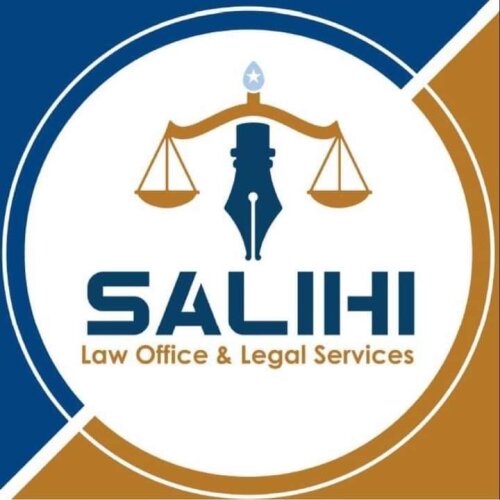Best Employer Lawyers in Somalia
Share your needs with us, get contacted by law firms.
Free. Takes 2 min.
Or refine your search by selecting a city:
List of the best lawyers in Somalia
About Employer Law in Somalia
Employer law in Somalia encompasses the regulations and practices that govern the relationship between employers and employees. With a tumultuous past, the development of employer law in Somalia has evolved to address both traditional labor practices and modern economic demands. These laws aim to establish fair employment practices, resolve disputes, regulate wages, and ensure safe working conditions. Though significant strides have been made towards stability, the legal framework continues to develop, incorporating international labor standards as part of its evolution.
Why You May Need a Lawyer
Engaging a lawyer specializing in employer law in Somalia could be essential for various reasons, including:
- Understanding contract terms and obligations or drafting employment agreements that comply with local laws.
- Navigating disputes between employers and employees, such as wrongful termination or discrimination claims.
- Ensuring compliance with occupational safety and health regulations.
- Assisting with dispute resolution through mediation, arbitration, or litigation.
- Providing guidance on regulatory changes and how they affect employment policies.
Local Laws Overview
Key aspects of local laws relevant to employer law in Somalia include:
- Labor Code: The Somali Labor Code outlines the basic framework for employment relationships, including hiring, termination, and conditions of work.
- Minimum Wage: There are regulations concerning minimum wage, though enforcement can vary, requiring employers to be diligent about lawful compensation.
- Working Hours: Standard working hours and overtime regulations are stipulated to ensure adequate rest and reduce labor exploitation.
- Employment Contracts: Laws require clear articulation of terms between employer and employee, typically in written contracts.
- Health and Safety: Employers must adhere to safety protocols and conditions to ensure the wellbeing of employees in the workplace.
- Dispute Resolution: There are established procedures for settling workplace disputes, which may involve legal intervention.
Frequently Asked Questions
What is the legal working age in Somalia?
The legal working age in Somalia is typically 15 for non-hazardous work, while individuals aged 18 and above can engage in all forms of employment.
Are employment contracts mandatory?
Yes, it's recommended and often necessary to have employment contracts to clearly define the rights and responsibilities of both parties.
What are the common grounds for employee termination?
Common grounds include breach of contract, misconduct, redundancy, or health incapacity, all of which must comply with legal standards.
How are employee grievances typically addressed?
Employee grievances can be addressed through internal channels, labor offices, mediation, or formal legal proceedings.
Are there specific laws addressing discrimination in the workplace?
Yes, Somali laws prohibit discrimination based on gender, race, religion, and other protected characteristics.
How is overtime compensation handled in Somalia?
Overtime compensation is regulated, often entitling employees to higher pay rates for hours worked beyond the standard working week.
What should employers know about leave entitlements?
Employers are required to provide leave entitlements, including annual leave, sick leave, and maternity leave, in accordance with the labor code.
How is workplace safety regulated?
Workplace safety is regulated through occupational health and safety guidelines, requiring employers to maintain safe working environments.
Can foreigners be employed in Somalia?
Yes, foreigners can be employed, but they must adhere to immigration and employment requirements specific to Somalia.
Are unions prevalent in Somalia?
While the concept of unions is present, their effectiveness can be limited due to socio-economic challenges and political factors.
Additional Resources
For further assistance, consider reaching out to the following resources:
- Ministry of Labor and Social Affairs: Key governmental body overseeing employment law compliance.
- Local legal aid organizations: They provide support and representation for employment dispute cases.
- International Labor Organization (ILO): Offers guidance and support in aligning with international labor standards.
Next Steps
If you require legal assistance regarding employer issues in Somalia, consider taking the following actions:
- Consult with a lawyer specialized in labor law to gain clarity on your rights and obligations.
- Review your employment contract or draft a new one under the guidance of legal experts.
- Reach out to relevant governmental bodies for support or to address compliance issues.
- Maintain documentation of employment-related matters to facilitate dispute resolution if necessary.
Taking these steps can provide you with a clearer understanding of your position and ensure you are well-prepared to address any legal challenges confidently.
Lawzana helps you find the best lawyers and law firms in Somalia through a curated and pre-screened list of qualified legal professionals. Our platform offers rankings and detailed profiles of attorneys and law firms, allowing you to compare based on practice areas, including Employer, experience, and client feedback.
Each profile includes a description of the firm's areas of practice, client reviews, team members and partners, year of establishment, spoken languages, office locations, contact information, social media presence, and any published articles or resources. Most firms on our platform speak English and are experienced in both local and international legal matters.
Get a quote from top-rated law firms in Somalia — quickly, securely, and without unnecessary hassle.
Disclaimer:
The information provided on this page is for general informational purposes only and does not constitute legal advice. While we strive to ensure the accuracy and relevance of the content, legal information may change over time, and interpretations of the law can vary. You should always consult with a qualified legal professional for advice specific to your situation.
We disclaim all liability for actions taken or not taken based on the content of this page. If you believe any information is incorrect or outdated, please contact us, and we will review and update it where appropriate.
Browse employer law firms by city in Somalia
Refine your search by selecting a city.









